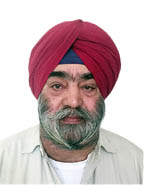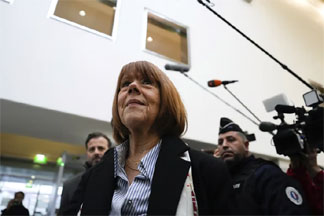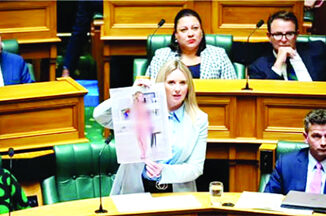
-
108 candidates have registered so far, beating the previous record of 91

TORONTO (TIP): Canadian Conservative leader Pierre Poilievre is poised to enter the record books for contesting two consecutive elections with a record number of candidates on the ballot. While the number of candidates in Carleton in April was 91, it is inching towards the triple figure in River Battle-Crowfoot.
The number of candidates in an election for MP running into a three-figure mark would be historic, and Battle River-Crowfoot is all set to achieve it.
After Pierre Poilievre lost to Liberal Bruce Fanjoy by 4,513 votes in the last general elections on April 28 in Carleton, a riding that had its boundaries redrawn after the results of the 2021 Canadian census, he decided to run in a byelection in Battle River-Crowfoot in Alberta to regain a seat in the House of Commons. Conservative MP Damien Kurek, who has held the riding since 2019 and won re-election by more than 46,000 votes, quit his seat to make room for the party leader to enter the lower House of Parliament.
His defeat in Carleton did not bring an end to a protest movement, as the Longest Ballot Committee reiterated its intention to target the byelection in the Alberta riding of Battle River-Crowfoot. The group that spearheaded the Longest Ballot Paper campaign in Carleton has now set a target of getting 200 names on the ballot paper when the riding witnesses a by-election on August 18. With the deadline for filing nomination papers still 12 days away, 74 candidates of the Longest Ballot campaign have already been registered as candidates for the Battle River-Crowfoot riding. Until today, 78 candidates have filed their nominations. The Conservative leader, Pierre Poilievre, is one of them. The Liberal Party and the NDP have yet to officially register their candidates for the by-election.
The Longest Ballot Committee (LBC) is still short, however, of the group’s objective to run 200 candidates in the byelection. The movement opposes the first-past-the-post system and is calling for electoral reform. Voters in the Ottawa riding of Carleton during the April 28 general election had 91 names to choose from on their ballots as the group targeted Poilievre’s long-held seat.
The LBC came into being to protest Canada’s first-past-the-post system. It fielded over 90 candidates in Carleton. The ballots were nearly a meter long and had to be folded multiple times to fit into voting boxes. Canada does not use Electronic Voting Machines (EVMs) for polling.
The longest ballot movement is linked to the satirical Rhinoceros Party of Canada, which was founded in 1963 and has policies and plans like making “Sorry” the new official motto of Canada and a pledge to open “tax havens” in all provinces. The independent and Rhinoceros Party-aligned candidates received 817 votes on April 28, while Fanjoy’s margin of victory over Poilievre was 4,315 votes.
The LBC laid out its plan in an email sent to supporters, saying the riding of Battle River-Crowfoot “needs 200 candidates” and the group will “do our best to make a long ballot happen.” The group also called for those living in or near the riding to help collect nomination signatures for the candidates because each person needs 100 local voters’ signatures to be nominated. Pierre Poilievre wants this number to be raised.
The move mirrors the group’s targeting of the Ottawa-area Carleton riding that Poilievre lost in the April 28 election to Liberal candidate Bruce Fanjoy. Fanjoy received 50.8 per cent of the vote in the riding, while Poilievre received 45.8 per cent, coming in second for the first time since he was first elected in 2004.
It is not Pierre Poilievre alone whose name will appear on the longest ballot paper in four months after he unsuccessfully contested in Carleton. Some of the contestants from the Carlton election may also be the candidates in the Battle River-Crowfoot as well.
One name that is a constant is Tomas Szuchewycz, who served as the official agent for Longest Ballot participants in Carleton and has the same role in this byelection. It’s the agent’s job to manage the campaign’s finances and report back to Elections Canada. Pierre Poilievre has not taken the protest movement well. He assailed the move in his election campaigning. “We need to get rid of this long ballot,” he was quoted by the media as saying, thus maintaining that there’s “no justification for it.” He, instead, suggested increasing the number of signatures required to be able to run as a candidate.





Be the first to comment